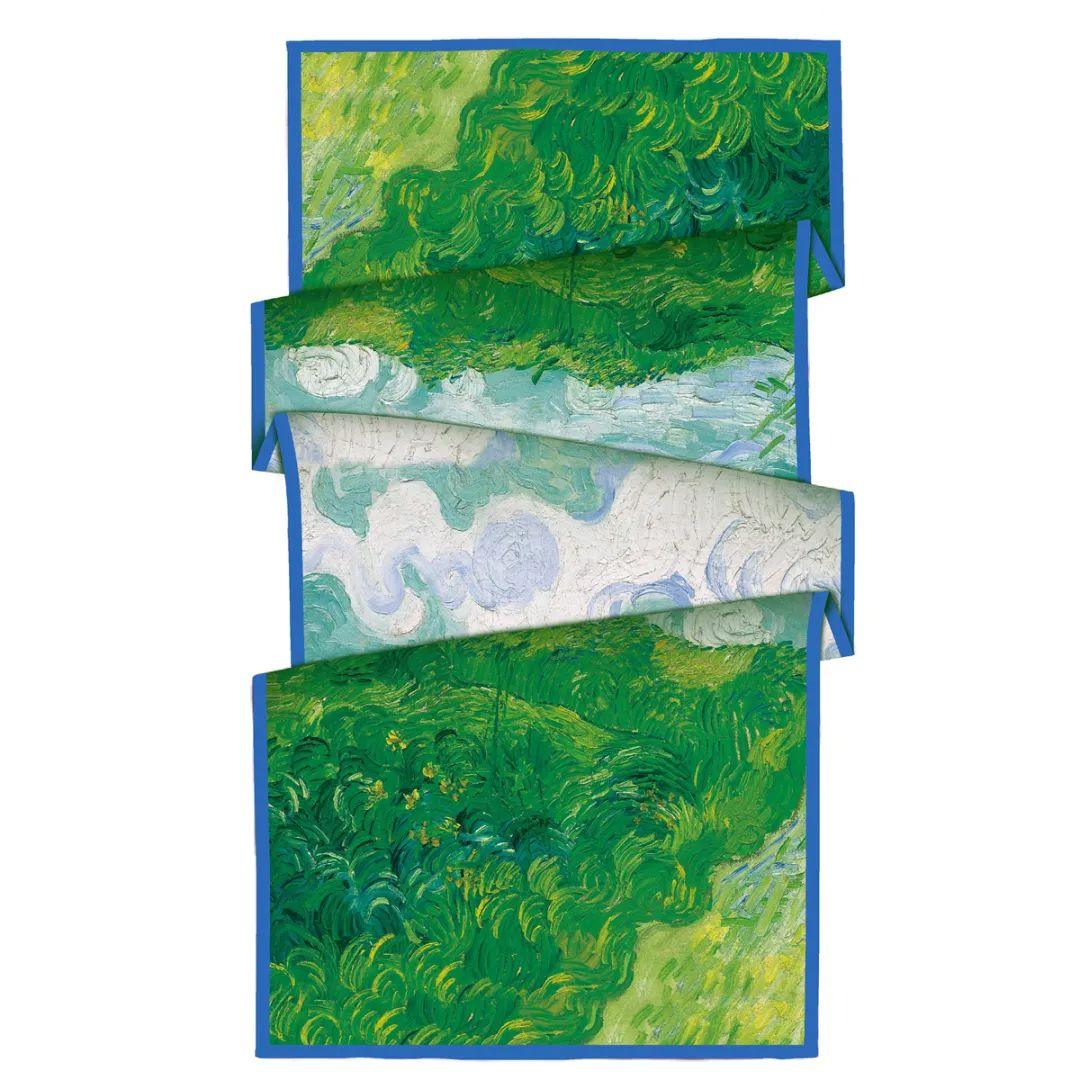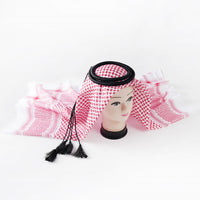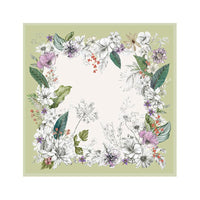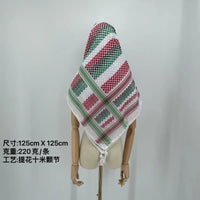Can I Wear a Keffiyeh in Solidarity?
The keffiyeh, a traditional Middle Eastern headscarf, has become a symbol of Palestinian identity and resistance. For many, it represents solidarity with the Palestinian cause. However, the question arises: "Can I wear a keffiyeh in solidarity?" This topic has sparked debates about cultural appropriation and the appropriate ways to show support. In this article, we will explore the cultural significance of the keffiyeh, the implications of non-Arabs wearing it, and how to wear it respectfully.
Understanding the Keffiyeh's Cultural Significance
The keffiyeh is more than just a piece of fabric; it holds deep cultural and political significance. Traditionally worn by Arab men, particularly in Palestine, the keffiyeh is a symbol of resistance and solidarity. The black and white keffiyeh is especially associated with Palestinian nationalism and has been worn by key figures like Yasser Arafat.

Dr. Al-Agha explains, “The keffiyeh remains a symbol of sovereignty, identity, existence, and revolution. It is the unifying language of the Palestinian people, at home and abroad, and a symbol of revolution and struggle.” This powerful statement underlines the importance of understanding the keffiyeh's meaning before wearing it.
Cultural Appropriation vs. Solidarity
Wearing a keffiyeh as a non-Arab can be seen in two ways: as a form of solidarity or as cultural appropriation. Cultural appropriation occurs when elements of one culture are taken out of context and used by another culture, often without understanding or respecting their significance. This can be offensive and hurtful to the original culture.
On the other hand, wearing a keffiyeh in solidarity means recognizing its significance and using it to show support for the Palestinian cause. As one Palestinian commented on Reddit, "Yes, you can and we appreciate it, just make sure it is made in Palestine and not in China/India... etc."
When is Wearing a Keffiyeh Considered Cultural Appropriation?
Wearing a keffiyeh without understanding its meaning or the context in which it is worn can be seen as cultural appropriation. It’s essential to know why you are wearing it and what it represents. For example, if someone asks you about the keffiyeh, you should be able to explain its significance and the Palestinian struggle it symbolizes.
Elias Jahshan, an Australian journalist of Palestinian descent, emphasizes this point in his article on Medium. He recalls seeing a Palestinian student proudly wearing a keffiyeh and realizing its importance as a symbol of cultural pride and resistance. Jahshan warns against using the keffiyeh as a mere fashion statement, as it strips the garment of its significance and can be seen as disrespectful.

How to Wear a Keffiyeh Respectfully
If you choose to wear a keffiyeh as a sign of solidarity, here are some guidelines to do so respectfully:
- Educate Yourself: Learn about the history and significance of the keffiyeh and the Palestinian cause. Understanding the context is crucial.
- Buy Authentic Keffiyehs: Purchase keffiyehs made in Palestine to support local businesses and ensure authenticity. Brands like Hirbawi are recommended.
- Wear it with Intention: Be prepared to explain why you are wearing the keffiyeh and what it represents. This shows respect and solidarity.
- Avoid Fashion Trends: Do not wear the keffiyeh as a fashion accessory. It is a symbol of resistance and should be treated with respect.
Conclusion
So, can you wear a keffiyeh in solidarity? Yes, but it comes with responsibilities. Wearing a keffiyeh respectfully means understanding its cultural and political significance, supporting Palestinian artisans, and being prepared to explain its meaning. By doing so, you show genuine solidarity and respect for the Palestinian cause.
In summary, the keffiyeh is more than just a scarf; it is a powerful symbol of resistance and solidarity. Wearing it with knowledge and intention can be a meaningful way to support the Palestinian people. However, it is essential to avoid cultural appropriation by treating the keffiyeh with the respect it deserves.






